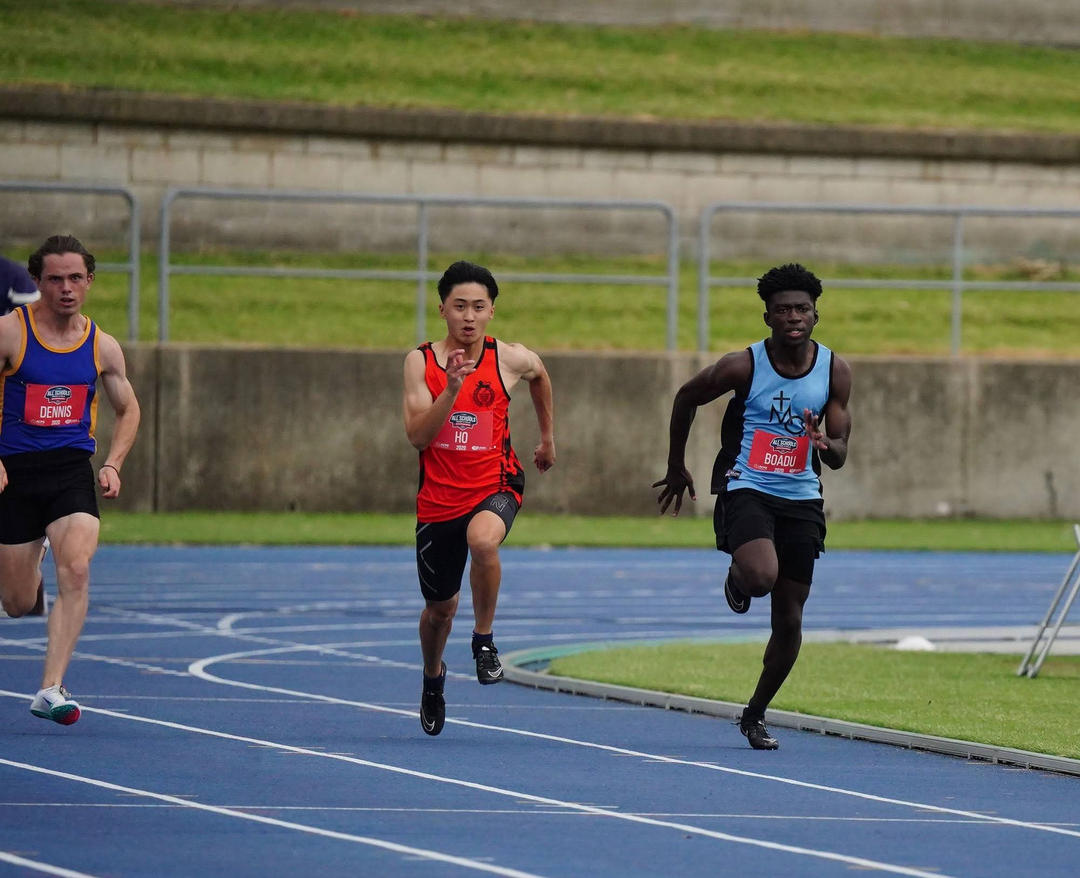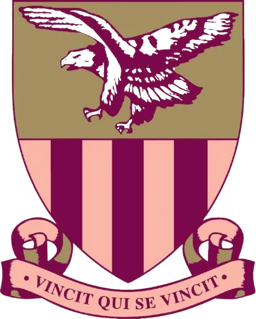Should I Quit Sports To Study? How Competitive Sports Boosted my ATAR to 98.90
Author: Jason Ho (M.E Specialist)
- Ex-NBSC Selective High School
- 98.90 ATAR (Australia's Top 1.1% )
- Australian Youth Athlete
- NL English Academy M.E Specialist
When you think about academic excellence, like most, you probably envision hours of studying—perhaps even a bit of stress.
But what if I told you, that without competitive sports, I may never have achieved within the top 2% of the Australia in the final HSC.
Sounds ridiculous.
And many students don’t even participate in a sport regularly.
But I truly believe in the value of sport participation, especially for young students looking to become successful.
Here’s my take on it, as a HSC High Achiever (98.90 ATAR) and national-level athlete.
Here’s a photo taken at the NSW All-Schools Championship Final back in 2020, where I placed 10th overall in the 100 meters (in red).
1. How To Master Time Management: Juggling Sports and Studies
I knew that I wouldn’t have much time if I was to commit to a competitive sport, which all the more forced me to prioritise and execute time management.
I became proficient at scheduling study sessions, planning ahead, and breaking down tasks into manageable chunks.
With the rigid structure of my sports commitments every week, I found a nice rhythm where my study sessions were placed comfortably in a routine between school and training.
I found myself more focused during my study time as I knew exactly what needed to be done in those study periods.
2. The Secret to Discipline and Consistency
Discipline is a transferable skillset that sports unlocked for me.
Turning up to training and feeling like I was working towards something gave me purpose, and was something to counterbalance the mundanity of studying at times.
With the rigid structure to my sporting commitments, I developed a routine where I studied at the same time each day, even when it was tempting to skip.
It was a case of “I had to study now, or else I’d fall behind”, knowing that my trainings would take up much of my spare time in the future.
And over time, this consistency became second nature.
This mindset was invaluable during exam periods and helped me stay on track when studying for difficult tests.
3. Boosting My Physical and Mental Fitness
Doing sports makes you feel good.
Endorphins kick in, your body starts feeling good, and it’s a positive feedback cycle that compounds on itself-not to mention the “feel good” hormones that last way beyond your workout session.
As you can probably imagine, this helped monumentally with improving mental wellbeing. It was clear that exercise directly related to positivity towards studying, even during the most stressful times.
They say “a strong body is a strong mind” and I truly believe in the truth of that phrase, which is why I preach the importance of sports in keeping my mind sharp and ready to take on academic challenges.
4. Strengthening the “NO BS” Mindset
You don’t have time to falter in competitive sports.
You need to ride the waves of momentum, and when setbacks occur, you don’t have the time to sulk or you’ll fall further and further down the negativity hole.
That’s where the “NO BS” mindset kicks in, and you’re almost forced to adopt a growth perspective, that you can change the way things went if you’d prepared a little more.
This mentality helped me tremendously when it came to academics.
I remember during my HSC year; yes, the one year where every single grade mattered-I actually received the worst mark I’d ever gotten in an English assessment to date.
I was confused, gutted-and most definitely stressed for my future. It felt like I had screwed up my entire English Advanced mark which would ultimately impact my ATAR; a number that would define so many life trajectories.
But you know what I did?
I actually ended up working harder. I did a practice paper every day leading up to my next English assessment which was a written exam. I started reading books. It seemed that this setback was the exact catalyst I needed to end up achieving huge success in the final HSC English Advanced exam.
I had two choices. Either do nothing and feel sorry for myself, or actually do something about it.
That was the mindset that my experiences at the top of high school athletics taught me.
Here’s a photo of my coach Melinda Gainsford-Taylor and my training partners at the 2019 All Schools Championships after I false started in the 100m heats and got disqualified.
I was obviously devastated at that moment, but this was a core memory of mine as it spurred me to perform a mentality switch that set me up for future successes.
5. How To Ace Your OC, Selective & High School Goals
One of the most significant parallels between sports and academics is goal setting.
In sports, you always have clear, measurable goals. Whether that be a new personal best time, or getting in however many sessions every week. You always had to have direction with your actions.
The same approach worked wonders in my academic life, especially throughout my HSC year where I set goals that guided me towards eventual success.
I had journalled throughout year 12 about many things, writing down how I felt with each subject and the marks I needed to achieve in order to maximise my ATAR. Of course, I had to be realistic. But the very fact that these goals were ACTUALLY achievable in my mind was the reason for my motivation to study harder.
Just like pushing through the final rep of a brutal lactic session (these sessions often resulted in many athletes puking), knowing that I was working toward something important made all the hard work feel worthwhile.
Each academic achievement, no matter how small, felt like a win, and it motivated me to keep striving for more.
Looking back, I’ve come to realise how much competitive sports shaped my academic success.
It doesn’t have to be a “competitive sport” per se, but the benefits of picking up even a casual sport or fitness hobby FAR outweigh the costs.
That’s my take on it. And may your child see the same success with it as well.
Thank you,
Jason Ho
M.E Specialist, NL English Academy
We're proud to be the main sponsor of North Sydney Boys High School Football Club.
- Since 2025 ❤️
© 2025 NL English Academy. All Rights Reserved | Privacy Policy | Terms & Conditions |





